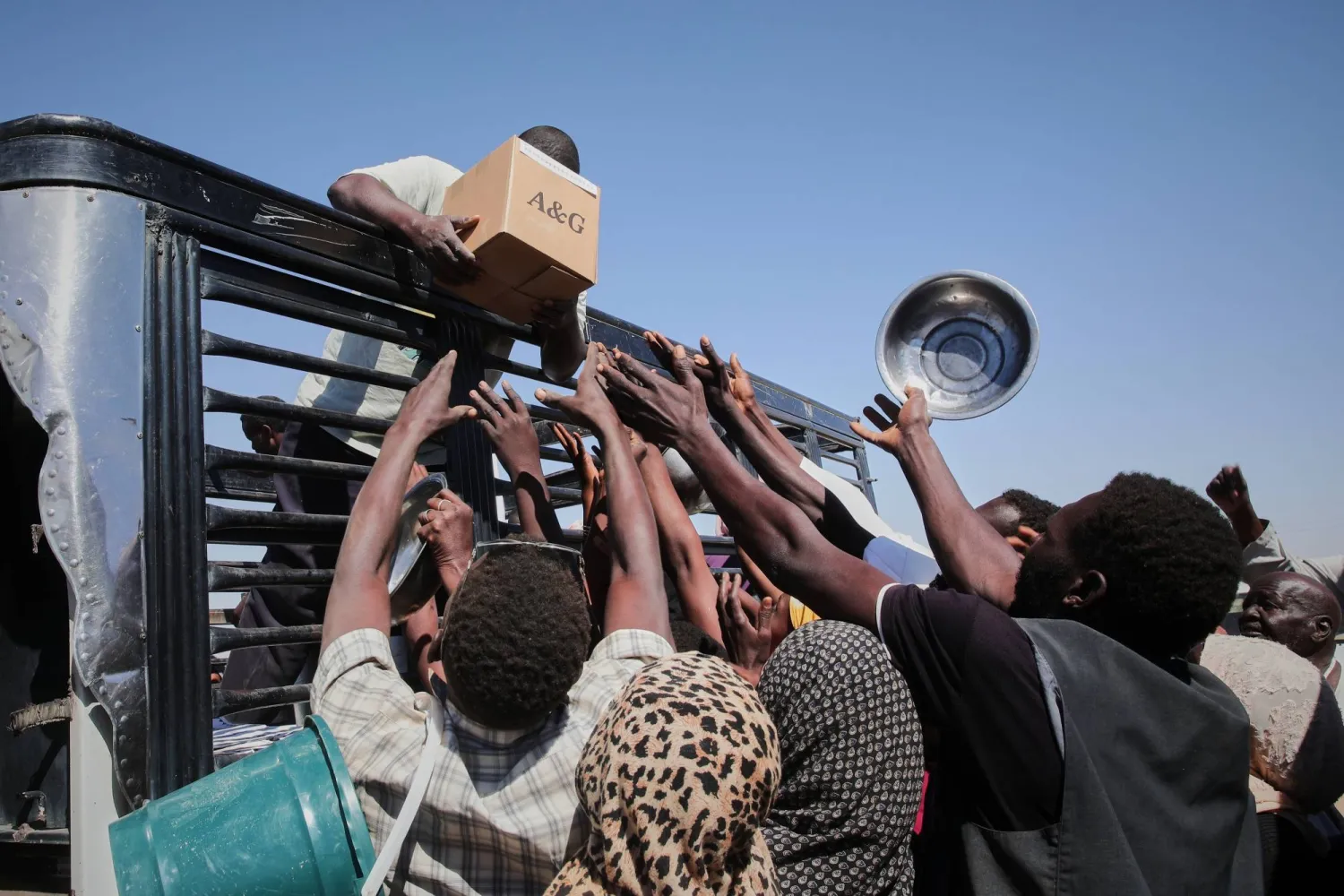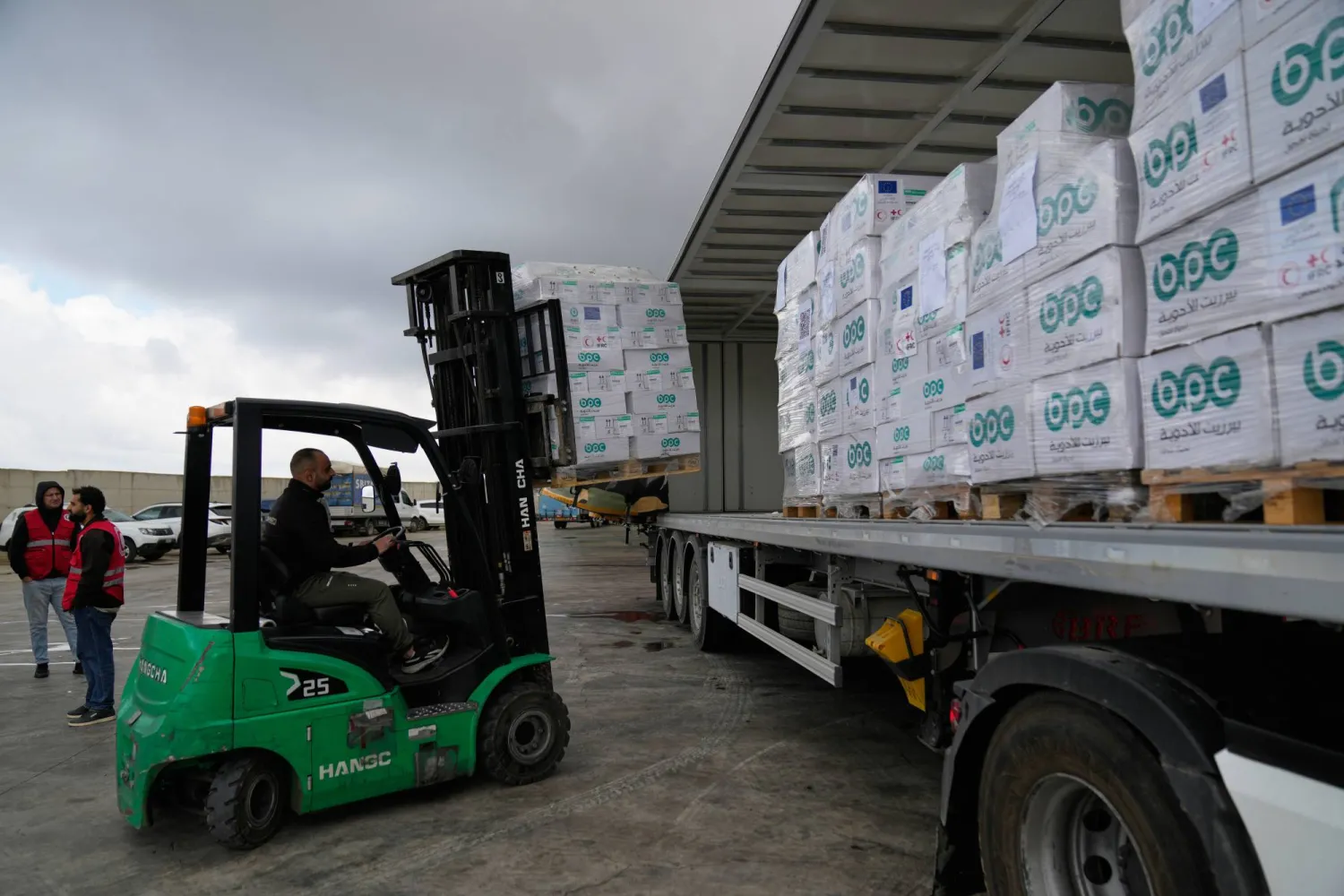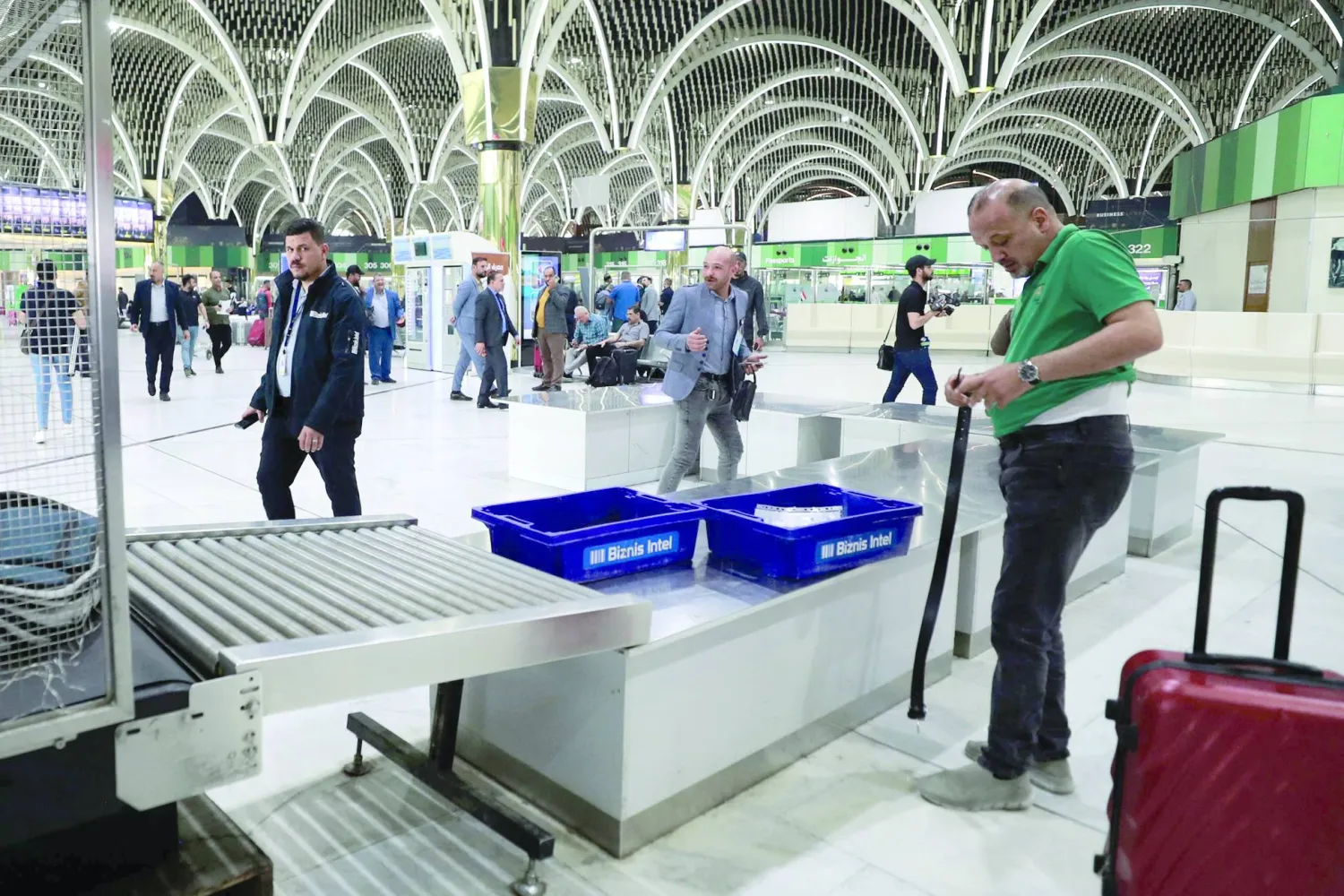Iraq called on all parties to show restraint amid soaring tensions between neighboring Iran and Israel, Deputy Prime Minister Mohammad Ali Tamim said on Monday, as talks on the complex US-Iraq relationship began in Washington.
The meetings come as US ally Israel weighs its response to Iran's weekend missile and drone attack, with the United States and Europe urging restraint.
Tamim, who co-chaired a meeting of the US-Iraq Higher Coordinating Committee with US Secretary of State Antony Blinken, said Iraq was concerned about its region being "dragged into a wider war that will threaten international security and safety."
"And therefore, we call on all parties for self-restraint and respect the rules of diplomatic works and also international laws," he said.
Iraq is a rare ally of both Washington and Tehran. Iraqi airspace was a main route for Iran’s unprecedented drone and ballistic missile attack on Israel, and Iraqi officials say Iran informed them, as well as other countries in the region, ahead of the attack.
A delegation led by Prime Minister Mohammed Shia al-Sudani will meet officials across Washington on Monday, including President Joe Biden and Defense Secretary Lloyd Austin.
US and other Western officials have welcomed economic reform plans put forward by Sudani, but concerns remain over the influence of Iran-backed groups. Shiite armed groups have engaged in tit-for-tat attacks on US forces linked to Israel's war in Gaza.
The US invaded Iraq in 2003 to topple Saddam Hussein and withdrew in 2011, only for troops to return in 2014 to help fight ISIS after the extremist group overran large parts of the country.
Washington and Baghdad are in talks over ending the US-led military coalition in the country, although the Higher Coordinating Committee is tasked with discussing other aspects of the relationship, including economic ties.
Blinken, who reiterated that Washington does not want to see the regional conflict swell, said the meetings would focus on issues including energy security, democracy, the rule of law, climate and water, and noted US private sector interest, especially in Iraq's energy sector.
"Through these efforts we look forward to helping advance the prime minister's affirmative agenda, and seeing Iraq succeed," Blinken said.









